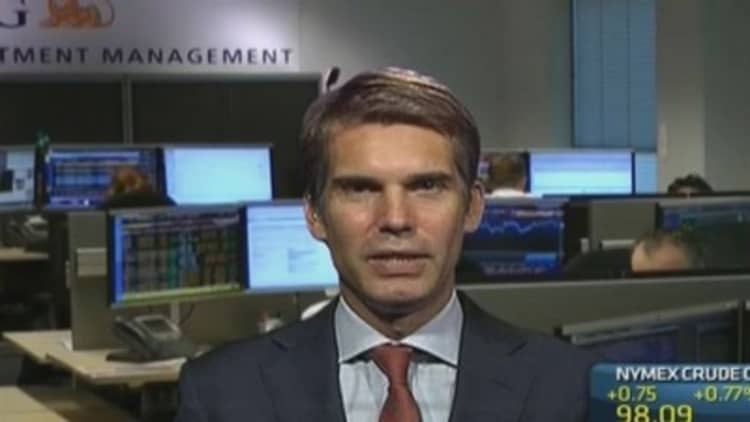High-yield bond funds accelerated losses this week, hemorrhaging $11.4 billion as investor rushed to plant their cash in less risky assets.
The outflows were the largest ever in dollar terms and the fourth-biggest ever as a percentage of assets-under-management, according to Bank of America Merrill Lynch.
"This past week, investors took their collective foot off the gas pedal, weighing the implications of strong economic growth and what effect increasing wage inflation might have on the Federal Reserve's interest-rate policy," said Tom Roseen of funds-data provider Lipper, in a note on Friday.
Read MorePimco bleeds, but bond king Bill Gross backed
High-yield or "junk" bonds—debt securities sold by companies at a higher risk of default—have enjoyed a multi-year bull run, with investors scrambling for returns at a time of record-low interest rates.
However, tumultuous news from Russia, Gaza and Iraq over the last few weeks has seen investors turn their back on riskier assets in favor of those perceived as "safe havens" such as German Bunds and Treasurys, as well as currencies including the U.S. dollar and the .

"The key driver of the global capital market is the heightened geopolitical risks ahead of the weekend," said Marc Chandler, the head of currency strategy at BBH, in a note.
Global equity markets have declined in sync with high-yield bonds. This week's $20.1 billion outflow from developed market equity funds was the biggest in six months, according to BofA.
Standard Bank's Demetrios Efstathiou said the exodus from developed market high-yield would "inevitably" hit emerging-market credit, but forecast that the latter would outperform relatively speaking.
"The re-awaking of markets to credit risk, would lead to greater credit differentiation. Investors are also better off with shorter duration assets, as geopolitical risks rise," he wrote in a note on Friday.
—By CNBC's Katy Barnato

